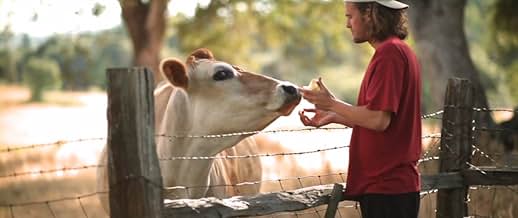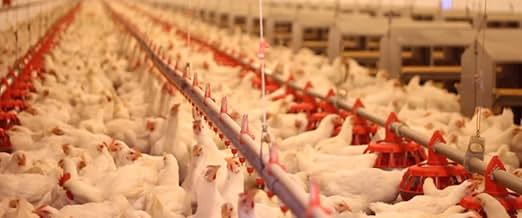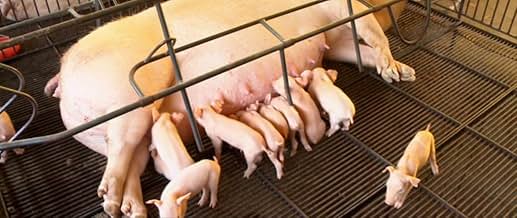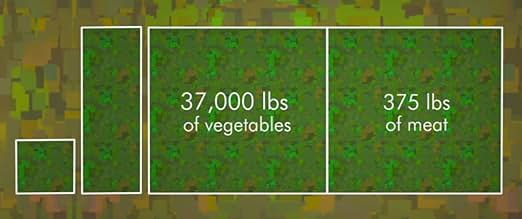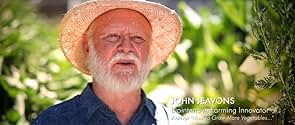Agrega una trama en tu idiomaFollow the shocking, yet humorous, journey of an aspiring environmentalist, as he daringly seeks to find the real solution to the most pressing environmental issues and true path to sustaina... Leer todoFollow the shocking, yet humorous, journey of an aspiring environmentalist, as he daringly seeks to find the real solution to the most pressing environmental issues and true path to sustainability.Follow the shocking, yet humorous, journey of an aspiring environmentalist, as he daringly seeks to find the real solution to the most pressing environmental issues and true path to sustainability.
- Dirección
- Guionistas
- Elenco
- Self - Former U.S. Vice President
- (material de archivo)
- …
- Dirección
- Guionistas
- Todo el elenco y el equipo
- Producción, taquilla y más en IMDbPro
Opiniones destacadas
I first heard about these issued in 2001, when a friend loaned me a video of author John Robbins speaking about the inefficiency of meat production (among other issues it creates). Later, I heard of the UN and WHO studies, reading articles that up to 70% of farmland in the US is used to grow grain or corn to feed to livestock. These animals have been multiplied at an unnatural rate to feed our whims, and what to mention all the insane cruelty, hormone injections, waste production, ruining oceans (see the film), etc, but the water and land use to raise these animals for several years far exceeds anything that is remotely sustainable. When you kill one of these sentient, feeling creatures to satisfy your taste buds, you also get only 1 or a few meals out of it. Just imagine how many people could be fed off that land if there were no livestock to feed?
The reality is that most people think they cannot survive as a vegan. They lack the will power or something. Well, I had many middle school students go vegan when they learned about this important topic, and most of them are still going strong as vegans. There are countless successful athletes who are vegan or vegetarian, and you will certainly be at less risk for coronary diseases, arterial plaque (see "Fat Sick and Nearly Dead 2" for medical evidence), colon cancer, and many other diseases. Even osteoporosis is reduced among those who eat a healthy plant based diet. It turns out the acidity of meat signals our body to pull calcium into our bloodstream to balance it - and that the only available calcium comes from our bones. There was a Harvard study showing fewer hip fractures in China and third world countries with far less dairy and meat consumption. The calcium in leafy green vegetables is simply far more digestible.
One other point I can't help but make...many of the greatest thinkers of all time have concluded the necessity of abstaining from meat. Many religious and spiritual leaders have as well, usually for the same reasons. You will therefore be in great company if you can but make the sacrifice for the sake of life...
Here are a few quotes:
"A man can live and be healthy without killing animals for food; therefore, if he eats meat, he participates in taking animal life merely for the sake of his appetite. And to act so is immoral." ― Leo Tolstoy
"I have from an early age abjured the use of meat, and the time will come when men such as I will look upon the murder of animals as they now look upon the murder of men." ― Leonardo DA Vinci
"It is my view that the vegetarian manner of living, by its purely physical effect on the human temperament, would most beneficially influence the lot of mankind." ― Albert Einstein
"Until he extends the circle of his compassion to all living things, man will not himself find peace." ― Albert Schweitzer
"People often say that humans have always eaten animals, as if this is a justification for continuing the practice. According to this logic, we should not try to prevent people from murdering other people, since this has also been done since the earliest of times." ― Isaac Bashevis Singer
"By eating meat we share the responsibility of climate change, the destruction of our forests, and the poisoning of our air and water. The simple act of becoming a vegetarian will make a difference in the health of our planet." ― Thích Nhất Hạnh, The World We Have: A Buddhist Approach to Peace and Ecology
"Ethically they had arrived at the conclusion that man's supremacy over lower animals meant not that the former should prey upon the latter, but that the higher should protect the lower, and that there should be mutual aid between the two as between man and man. They had also brought out the truth that man eats not for enjoyment but to live." ― Mahatma Gandhi
"Elsewhere the paper notes that vegetarians and vegans (including athletes) 'meet and exceed requirements' for protein. And, to render the whole we-should-worry-about-getting-enough-protein-and- therefore-eat-meat idea even more useless, other data suggests that excess animal protein intake is linked with osteoporosis, kidney disease, calcium stones in the urinary tract, and some cancers. Despite some persistent confusion, it is clear that vegetarians and vegans tend to have more optimal protein consumption than omnivores. " ― Jonathan Safran Foer, Eating Animals
Anyway, please see the film and try not to let yourself discredit the whole thing if you find one or two statistics that might be a little off.
A real open eyes, which make me search for sustainable food or a vegetarian..
It's not a message most meat eaters and dairy users want to hear, as it's not easy to eat vegan in a culture so oriented to meat consumption. And it's not a message environmental groups acknowledge, a mystery explored by this courageous film maker. After learning that over 1100 activists were murdered in Brazil after protesting conversion of rain forests to animal agriculture, he considered putting the lid on this project.
But it was too important not to get the message out, he realized. The answer to so many environmental problems is right in front of us. It costs nothing, can be implemented today and simply requires people to switch to a plant based diet, which could amply feed several times our current population with the same production as today.
One of the most startling statements of the film was this: even if we stopped all systems of transportation (cars, trains, trucks, planes etc.) and turned off our utilities, we would still have irreversible damage from global warming, so long as we continued to raise so many animals for food.
The take away from this film is, go ahead and conserve energy, put solar on your roof, change to LED light bulbs, minimize long trips. But first, switch to a plant-based diet.
It asks a couple of simple questions, and finds answers that are so disturbing that it's the rare film that had an immediate impact on my behavior. Basically the film asks "how much does modern animal farming contribute to global warming and other pollution problems?" And the answer is, more than cars, trucks, planes and all other transportation combined. Maybe a LOT more depending on what metrics you use. It also asks, 'given these facts, why are no major environmental groups aggressively trying to change how we farm and eat, the way they're trying to change how we drive or power our houses? ' The answers are several and disturbing, and there's a bit of the thriller in how the filmmakers get sources to explain, or more chillingly suddenly clam up on camera as they realize what's being asked.
At times the film seems so personal and home-grown that I might have tended to dismiss it as the work of someone on the fringe, but doing some follow up reading it became clear that all this is pretty well grounded in solid science. (There are a some controversial claims here, but what becomes clear on further looking is that the basic points are hard to dismiss. For example, there's a review on here questioning the film's numbers about the greenhouse effect of methane. But if you go to the film's website, they list almost all the claims in the film, explain where they come from, and give links to the paper or article. In the case of methane it's from a NASA study on the upper atmosphere -- hardly some wild eyed fringe group.)
And some of the facts themselves are rather astounding. In a world short of clean water, do you really feel OK eating a burger that takes 660 gallons of clean water to produce?
Like all the best 'issue' documentaries, this will likely leave you examining your own lifestyle choices in a new light. What more can one ask from a 85 minute film?
Not too happy about our planet's ghastly prognosis, he wanted to do his best to conserve our limited resources. He became an "O.C.E." - Obsessive Compulsive Environmentalist - and began recycling, composting, taking shorter showers, turning the faucet off while brushing his teeth, replacing inefficient light bulbs, turning lights off when leaving a room and riding his bike everywhere he went.
None of his efforts seemed to help much, instead, as years went by, things were getting worse. Kip then read an unprecedented United Nation's report and once again, everything changed... this time for good. The "sustainability secret" was unveiled and that's when this fun journey begins.
"Cowspiracy" is the longest overdue film; it is audacious, poignant and funny. Kip's interviews expose the selfish and shameless agenda behind some of the biggest "Environmental" Organizations in a way that both opens eyes and entertains.
Those who take pleasure in witnessing the unmasking of the powerful and negligent who only are moved by dollar signs will find "Cowspiracy" to be an aphrodisiac.
¿Sabías que…?
- TriviaCo-director Kip Andersen became obsessed with (saving) the environment after seeing Al Gore's documentary An Inconvenient Truth (2006), eventually leading up to this documentary.
- Citas
Howard Lyman: Do what you can do as well as you can do it every day of your life and you will end up dying one of the happiest individuals that ever ever died.
- ConexionesFeatured in Days of Revolt: The Assault of the Animal Agriculture Industry (2016)
Selecciones populares
- How long is Cowspiracy: The Sustainability Secret?Con tecnología de Alexa
Detalles
- Tiempo de ejecución1 hora 30 minutos
- Color
- Relación de aspecto
- 2.35 : 1
Contribuir a esta página



